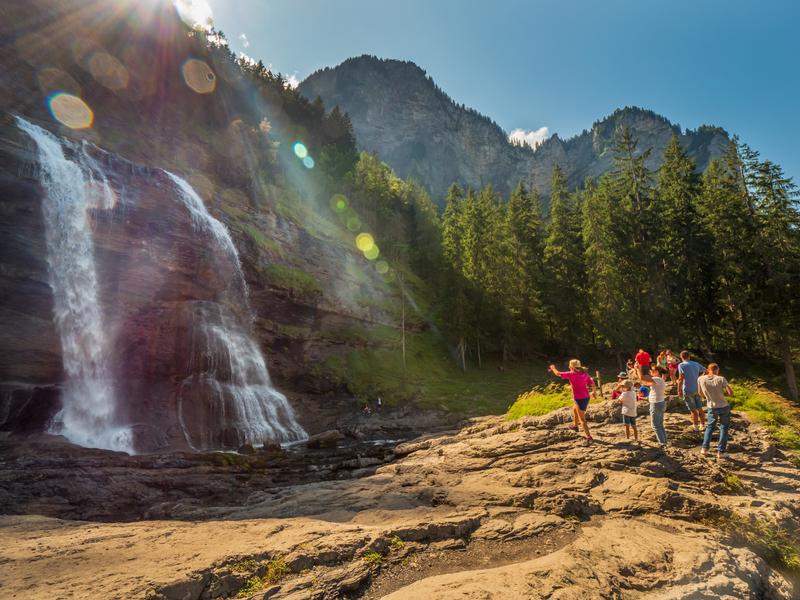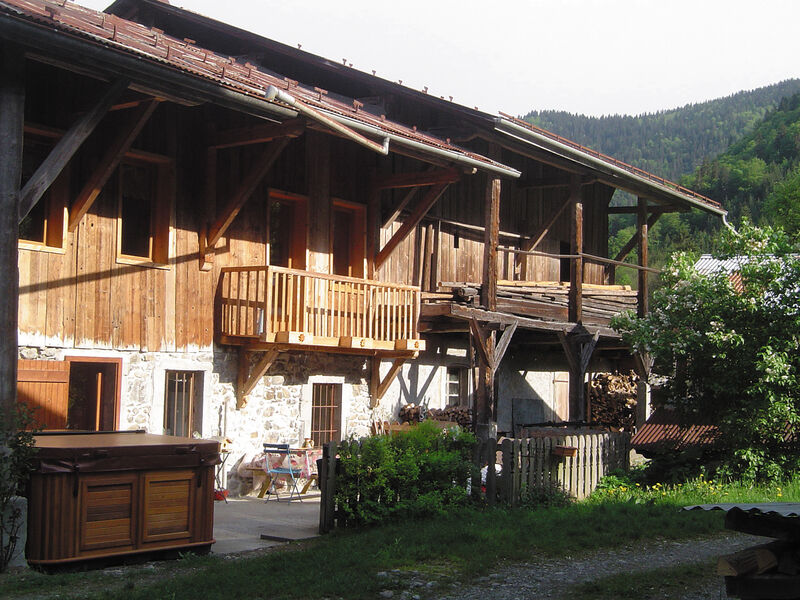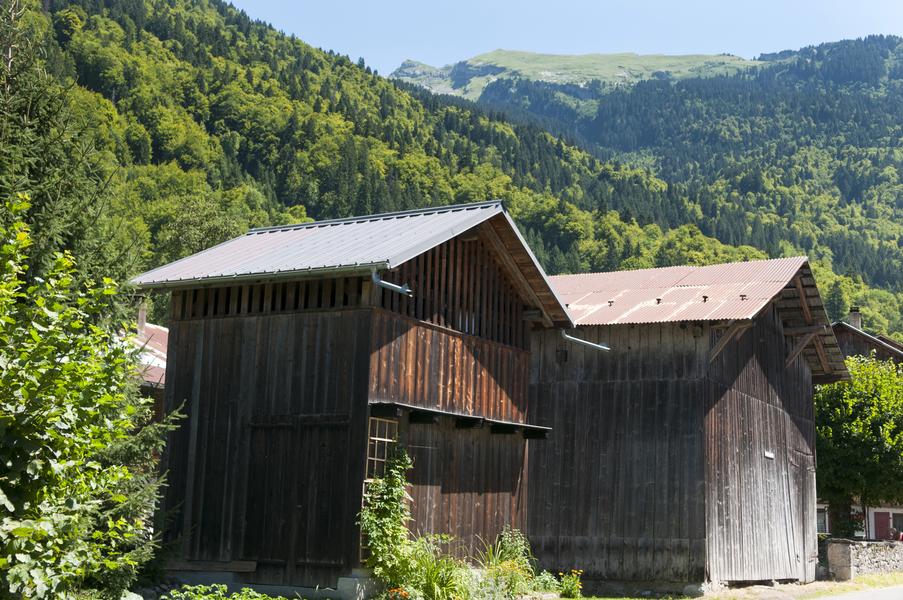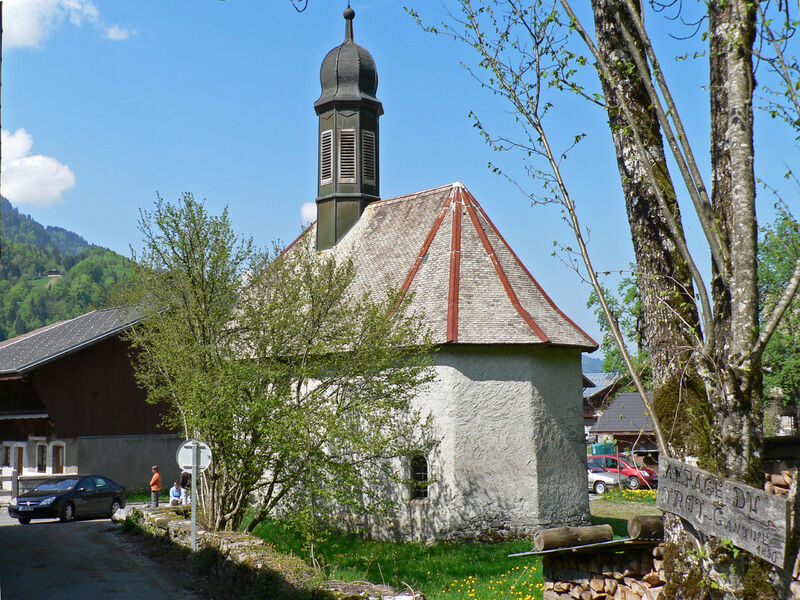All year round, daily.
A walk through the hamlet of Les Vallons means discovering a society that was structured around a dairy farm where the milk was harvested every day, in winter on the farms, and in summer at the Criou mountain.
In the early 19th century, a traveler was charmed by the beauty of Vallon's women. He left Samoëns and took the road to Sixt. Nowadays, to get there, it is necessary to leave the main road and head towards the base of the Criou. The discovery of such a special group of monuments began there and it was a determining factor in the attribution of the Pays d'art et d'histoire label to the municipality. Certainly, discovering its originality means being curious and strolling alongside the farms of Vallon d'en haut and Vallon d'en bas. While modern buildings are beginning to occupy an area that was originally devoted to agriculture, housing has retained the mark of intensive exploitation of a harsh environment.
In order to face the usually hostile nature, the large farms have been regrouped, supporting each other, reinforcing the sense of safety of their owners. In order to bring the inhabitants together, there are also the basins where people come to refresh themselves, where the herds used to stop to drink, one watered by a natural spring coming out of a tree trunk, the other proud of its column skilfully decorated by a sculptor from the village, François Mugnier. Vallon's life has another center, the 17th century chapel with its octagonal bell tower, topped by a dome with outward curves.
The Baroque influence is present. Dedicated to the Holy Apostles Jacques, Philip, and Joseph, the church was built in 1636 to stop the plague epidemic. Thinking about mountains implies snow and avalanches: in 1831, an avalanche flowed down the slope of the Criou and brought the snow to the height of the chapel bell tower, remaining there until August 15th. What if the saints had drawn it on themselves to protect the village? In 1999, the avalanche flowed down, stopping near the building. However, this was not the main danger. Fire and water risks have regularly threatened the inhabitants. A village under Septimontaine administration or an independent community from 1738 to 1811, Vallon endeavored to regulate everyone's life within a restrictive but necessary framework in order to escape the calamities.
The nesting of the farms and their outbuildings, the vast spruce-clad areas, explain how a fire quickly spreads and becomes a disaster. The beautiful manteling in grey or golden tones is easily set on fire as the farmsteads are home to large hay reserves. Flooding, another danger, recurred regularly and required surveillance until the dyking of the Giffre and Clévieux rivers reduced the risks. Daily life takes place between the sheltered entrances, warmed by the rising sun, the vegetable gardens in front of the house, and the neighboring orchards. From the apiary to the granary, from the barn to the house, come and go their guests, who strive to maintain farms and outbuildings, so close to each other, so similar in their materials and layout that one might think they were alike.No monotony in the architecture! Strolling through the hamlet, it is possible to see the variety of galleries, with rectangular bars or cut-out balustrades, and to notice the alternation of stone and wood, as well as the ventilation openings in the haylofts that surmount the dwellings. Two commas joined together draw bull horns, hearts, flames, four forms a curvilinear svastika. Elsewhere the symbols of card games are used. Closer to the entrance doors, the sculpted columns and lintels reveal the taste of the inhabitants, who, behind an apparent austerity, seek a simple and discreet look marked by tradition.
Group visits: all year round on reservation.

The Cascade du Rouget, nicknamed the "Queen of the Alps", offers visitors a contemplative and refreshing break.

This old farmhouse has been carefully renovated and has an outdoor hot tub. Step out the door straight onto the footpaths running up into the mountains.

Enjoy a family outing to discover the hamlet of Les Vallons in Samoëns and the banks of the Giffre.

This chapel was built in 1636 by Joseph de Gex, Baron de Saint-Christophe, Lord of Vallon, and the local councilors.